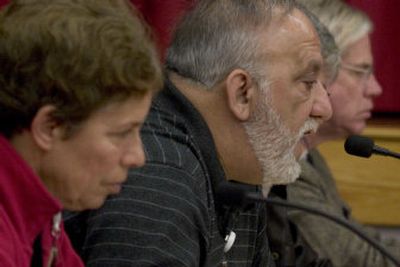‘Intelligent design’ voted out

DOVER, Pa. – Dover’s much-maligned school policy of presenting “intelligent design” as an alternative to evolution was officially relegated to the history books Tuesday night.
On a voice vote, and with no discussion beforehand, the newly elected Dover Area School Board unanimously rescinded the policy. Two weeks earlier, a judge ruled the policy unconstitutional.
“This is it,” new school board president Bernadette Reinking said Tuesday, indicating the vote was final and the case was closed.
A different group of school board members had been in control when the policy was approved in October 2004. The policy required that a statement be read to Dover public school students about “intelligent design” before ninth-grade biology class lessons on evolution.
The statement said Darwin’s theory is “not a fact” and has inexplicable “gaps.” It also referred students to an “intelligent-design” book, “Of Pandas and People.”
Eight families sued, and on Dec. 20, U.S. District Judge John E. Jones III sided with their argument that the concept of “intelligent design” – which attributes the existence of complex organisms to an unidentified intelligent cause – is religious, not scientific. The judge said that violated the establishment clause in the First Amendment.
Dover biology teacher Jennifer Miller was relieved Tuesday night to know the policy was officially off the books.
“I will feel comfortable again teaching what I’d always felt comfortable teaching,” she after the meeting, attended by a crowd of about 100 people.
School board members declined to comment after the vote.
Most of the previous board members who had defended the policy were ousted in the November election, replaced by candidates who pledged to eliminate the policy.
Policy defenders had said they were trying to improve science education by exposing students to alternatives with the policy. But the judge said the board’s real purpose was “to promote religion in the public school classroom” and said intelligent design could not be taught as an alternative to evolution in biology classes.
“I tried … to warn the board that we were facing a disaster, and obviously I was not persuasive enough,” said Jeff Brown, a former board member who resigned in protest after the policy passed. He said the costly court battle could have been avoided.